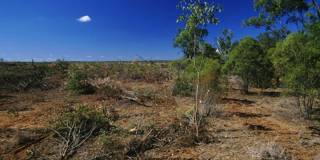The sovereign-debt crisis threatening developing economies is compounded by climate change and unchecked environmental destruction, which drive up borrowing costs. To confront these interconnected threats, rich countries must show that their commitments to financing climate action in poor countries are more than just talk.
BASEL – A recent report by the Independent Expert Group on Debt, Nature, and Climate reveals that many of the world’s 144 developing economies are on an unsustainable fiscal trajectory. On average, these countries spend 41.5% of their budget revenues – or 8.4% of GDP – on debt service, severely limiting their scope for public investments in education, health care, infrastructure, and innovation, which are essential for economic growth.

BASEL – A recent report by the Independent Expert Group on Debt, Nature, and Climate reveals that many of the world’s 144 developing economies are on an unsustainable fiscal trajectory. On average, these countries spend 41.5% of their budget revenues – or 8.4% of GDP – on debt service, severely limiting their scope for public investments in education, health care, infrastructure, and innovation, which are essential for economic growth.